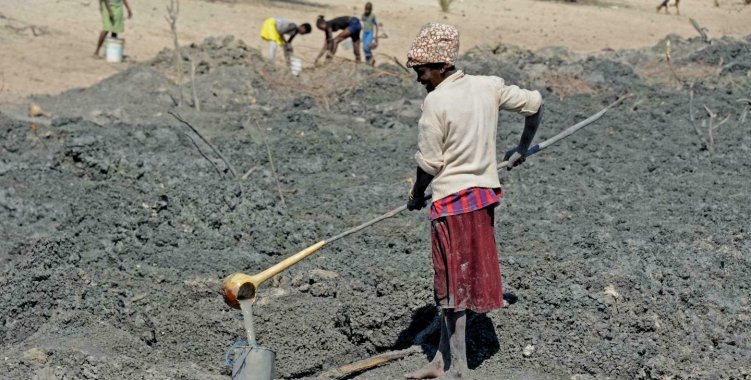In the study, which analyzes 178 countries and territories, Angola (169th position) and Mozambique (171st position) have the highest ETR scores, which looks at factors such as risk of water scarcity, rapid population growth, instability in temperatures and natural disasters.
Portugal is in 28th position in the "Ecological Threat Report" (ETR), threatened mainly by the potential rise in temperatures and water scarcity.
The authors of the second edition of the Report conclude that there is a "cyclical relationship between ecological degradation and conflicts" such as terrorism and civil war.
Eleven of the 15 countries with the worst ETR scores are currently classified as being in conflict, and the remaining four are at high risk of disrupting the peace.
"It's a vicious cycle in which resource degradation leads to conflict, and the resulting conflict leads to further resource degradation. Breaking the cycle requires improving ecological resource management and socioeconomic resilience," reads at the Institute for Economics and Peace (IEP).
Afghanistan has the highest overall score in the Report, which reflects the country's vulnerability, which could be exacerbated by climate change.
Brazil is in 40th place in the ETR index, Equatorial Guinea in 91st, Guinea-Bissau in 105th and East Timor in 127th. Guinea-Bissau and Cape Verde are referred to in the report, but not in the table.
North America and Europe are the two regions with the lowest average level of ecological threats, while South Asia, Sub-Saharan Africa and the Middle East and North Africa are the regions with the highest average level.
The IEP estimates that by 2050, 4.7 billion people will reside in countries with high and extreme ecological threats, which represent 48.7 percent of the world's total population.
The report identifies three groups of 30 countries under the greatest ecological pressure, namely the Sahel-Horn of Africa corridor between Mauritania and Somalia, the Southern Africa corridor between Angola and Madagascar, and the Middle East and Central Asia corridor between the Syria and Pakistan.
Of these, Angola is mostly exposed to the risk of food shortages, while Equatorial Guinea and Guinea-Bissau are in danger of suffering from water shortages.
The growth of malnutrition and food insecurity is one of the main threats identified, which are reversing a downward trend recorded for decades.
Between 2019 and 2020, food insecurity increased by 30.4 percent in part due to the covid-19 pandemic, and by 2050 it is estimated to increase by 43 percent, affecting 3.4 billion people.
The report makes a series of recommendations that IEP chief executive and founder Steve Killelea admitted in a meeting this Thursday with journalists that "are not easy to implement."
"Many of these problems are systemic in nature and what is needed is a systemic mindset to try to solve them," he stressed, suggesting greater interdisciplinarity of international and non-governmental organizations to work on issues such as refugee support, food, security, family planning, economic development and health.







